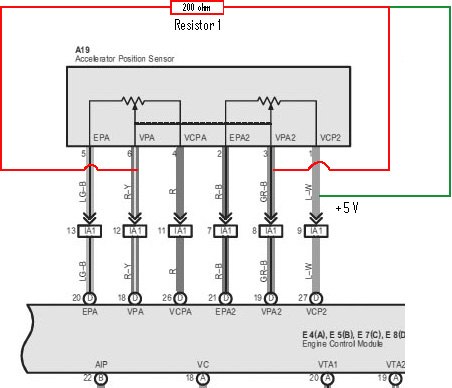#Exponent
Toyota Heading For The Hill, Again
Toyota received another invitation to join a little congressional chit-chat, reports The Nikkei [sub]. On May 6th, a U.S. House panel will hold a hearing to “further examine Toyota’s inquiry into potential electronic causes of sudden unintended acceleration,” as the invitation letter from Henry Waxman to James Lentz, president of Toyota U.S. says. The presence of Lentz is requested at the hearing.
Gilbert's Toyota Shenanigans Explained
This is left brain – right brain weekend. While the more image driven can submerge themselves in pictures of old car ads, the other faction can unleash their inner nerd with abandon. Yesterday, we covered how ABC had entered the grail of automotive disaster-fakery, previously populated by NBC and CBS. ABC’s smoking gun video had been torn to shreds.
Today, we turn our attention to the man who aided and abetted the tricksters: Associate professor David Gilbert of the renowned Southern Illinois University. His work has been inspected by Exponent, a research company hired by Toyota. Hired by Toyota? Well, that should discredit Exponent immediately. Not so fast.
Crash Sled thankfully has found a full copy of Exponent’s retort to Gilbert’s machinations. The report is hosted on the ABC website, so we can assume it passed ABC’s scrutiny, for what that may be worth. Let’s look at the report a little closer.
Warning: This discussion needs a basic understanding of electric circuitry. If that’s not your thing, then don’t waste you time reading further. We’ll leave you to Sunday’s pictures with the message that Gilbert is a charlatan extraordinaire, and that whoever put him on the stand to make a case against Toyota needs to have his or her head examined. However, should you own a 2010 Toyota Avalon, then you have slight cause for concern.
Toyota: The Battle Of The Papers
The Toyota case is heading towards hearings in DC and to courts all over the country. Both sides are putting heavy artillery in position. Both sides of the SUA wars commission heavy caliber studies – both with inconclusive results. Toyota funded a study into the electronics in its vehicles. Before that, a group of lawyers had “sponsored” Safety Research and Strategies, a company that makes money by investigating auto-safety for those suing auto makers. Ford, which had been at the receiving end of an SRS fusillade during the Explorer crisis, called the company “supposed safety advocates who are actually just shills for trial attorneys.”
Here are the latest dispatches from the front lines:















Recent Comments